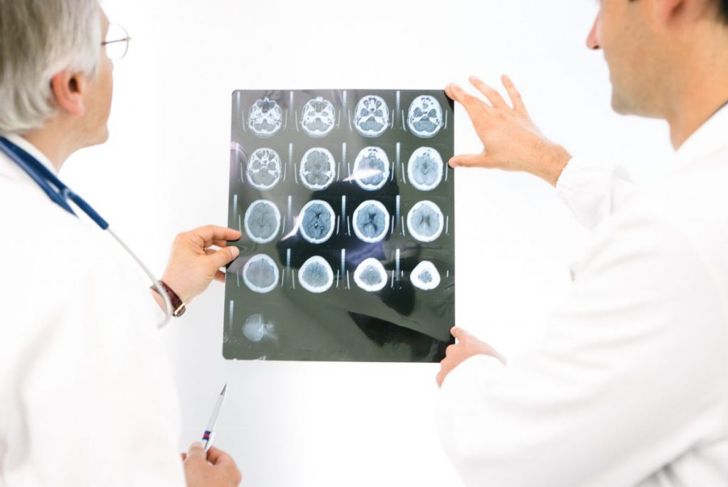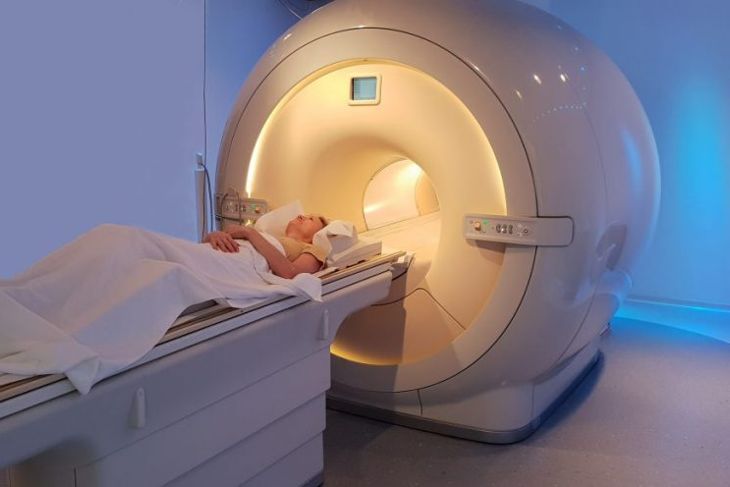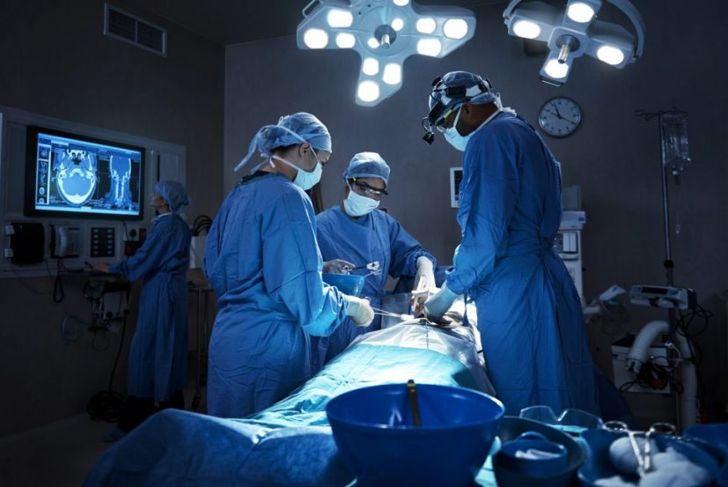Moyamoya disease is a rare and progressive cerebrovascular condition in which the carotid artery at the base of the brain narrows or becomes blocked, decreasing blood flow to the brain. In an attempt to deliver the blood the organ needs, tiny vessels at the base of the brain open up. In Japan, where Moyamoya disease was first described, the term means “puff of smoke” in Japanese, which describes this tangle of tiny blood vessels.
Symptoms of Moyamoya Disease
Moyamoya disease can occur at any age, but it tends to begin in childhood, in people five to ten years old. In adults, people between the ages of 30 and 50 are most affected. The symptoms partially depend on age; children are likely to have transient ischemic attacks (TIAs) or ministrokes. Children with Moyamoya disease may also experience seizures, uncontrollable movements, speech difficulties, developmental delays, headaches, and periods of temporary paralysis. Strokes are more common in adults with the condition. Older people also tend to experience vision problems, such as the loss of vision in one eye, trouble identifying objects, blurry sight, and poor vision in both eyes. Fainting and cognitive decline may also occur.
Symptoms of Stroke
If someone is experiencing any signs of stroke, he should seek immediate medical attention, even if the symptoms go away or are intermittent. To assess the signs of a stroke, use the FAST acronym:
Face
Smile. Does one side of the face droop?
Arms
Try to raise both arms. If one arm won’t rise at all or droops downward, a stroke could be taking place.
Speech
Slurred speech is another sign of stroke.
Time
If someone is experiencing any of these symptoms, he should get medical attention immediately. The longer a stroke goes untreated, the more likely it is that the event will cause brain damage or disability.
Moyamoya Disease Complications
Many complications of Moyamoya disease are associated with stroke. Some people who have a stroke experience vision disturbances. Though it is uncommon, some individuals with Moyamoya disease have involuntary movements of the muscles. Children who experience strokes may have mental processing difficulties that can make schoolwork challenging. Children may also experience emotional difficulties and develop low self-esteem as a result of mental processing problems. Adults who experience a stroke may have problems with memory and their cognitive functions. Seizures, speech disturbances, and weakness can also develop.
Causes of Moyamoya Disease
The exact cause of Moyamoya disease is not yet known, though experts think injury or genetics could be to blame. The disease has a higher rate of incidence in Japan, China, and Korea, which leads researchers to believe there is a genetic component. Moyamoya disease appears to be associated with specific medical conditions, including neurofibromatosis type 1, Down syndrome, hyperthyroidism, and sickle cell anemia. The condition may develop due to procedures such as chemotherapy, x-rays of the heart or skull, and surgery.
Risk Factors for Moyamoya Disease
Certain factors may put an individual at greater risk for developing Moyamoya disease.
Family History
Having a family history of the condition makes a person 30 to 40 times more likely to develop Moyamoya disease than the general population.
Gender and Age
Females are slightly more likely to develop the condition than males. The most commonly affected individuals are children under the age of 15 years old, though Moyamoya disease can affect adults.
Asian Descent
Though individuals all over the world are affected with Moyamoya disease, the condition has a higher rate of incidence in Asian countries such as China, Korea, and Japan.
Medical Conditions
As mentioned earlier, the condition is associated with certain medical conditions including sickle cell anemia, neurofibromatosis type 1, Down syndrome, and hyperthyroidism.
Moyamoya Disease Diagnosis
If someone goes to the doctor with symptoms of Moyamoya disease, the physician will take a medical and family history taken, conduct a physical examination, and run various tests. Imaging tests to examine brain activity and measure blood flow through the arteries and veins in the brain can aid the diagnosis. These tests may include magnetic resonance imaging (MRI), magnetic resonance angiography, profusion MRI, computerized tomography (CT) scans, cerebral angiography, transcranial Dopplar ultrasound, position emision tomography (PET) scans, single-photon emision computerized tomography (SPECT), and electrocephalogram (EEG).
Moyamoya Disease Treatment: Medication
A doctor may prescribe medication to help manage seizures or decrease the risk of stroke. Blood thinners can help prevent strokes. Calcium channel blockers may help decrease headaches and symptoms of transient ischemic attacks. If the individual also has seizures, she will be prescribed anti-convulsant medication as well.
Moyamoya Disease Treatment: Surgery
If brain scans indicate low blood flow, a doctor may recommend revascularization surgery. Surgeons bypass narrowed or blocked arteries in the brain to improve blood flow in the brain in revascularization surgery. A surgeon may perform a direct or indirect version of the procedure or a combination of both. Types of indirect revascularization surgical procedures include encephaloduroarteriosynangiosis and encephalomyosynangiosis. Some individuals with the disease develop brain aneurysms. If this happens, they may require surgery to prevent or treat a ruptured aneurysm.
Moyamoya Disease Treatment: Therapy
Someone with Moyamoya disease may need physical, occupational, speech, or cognitive-behavioral therapy to address the physical and psychological effects of stroke. Physical therapy can help patients regain lost function. Cognitive-behavioral therapy may help address the psychological and emotional issues that accompany the disease.
Moyamoya Disease Prognosis
Moyamoya disease causes the arteries in the brain to progressively narrow. Without surgical intervention, many individuals with this condition will experience multiple strokes and cognitive decline. Moyamoya disease can be fatal without treatment due to the possibility of intracerebral hemorrhage or bleeding in the brain. The fatality rate is approximately 4.3% in children and 10% in adults.

 Home
Home Health
Health Diet & Nutrition
Diet & Nutrition Living Well
Living Well More
More




















